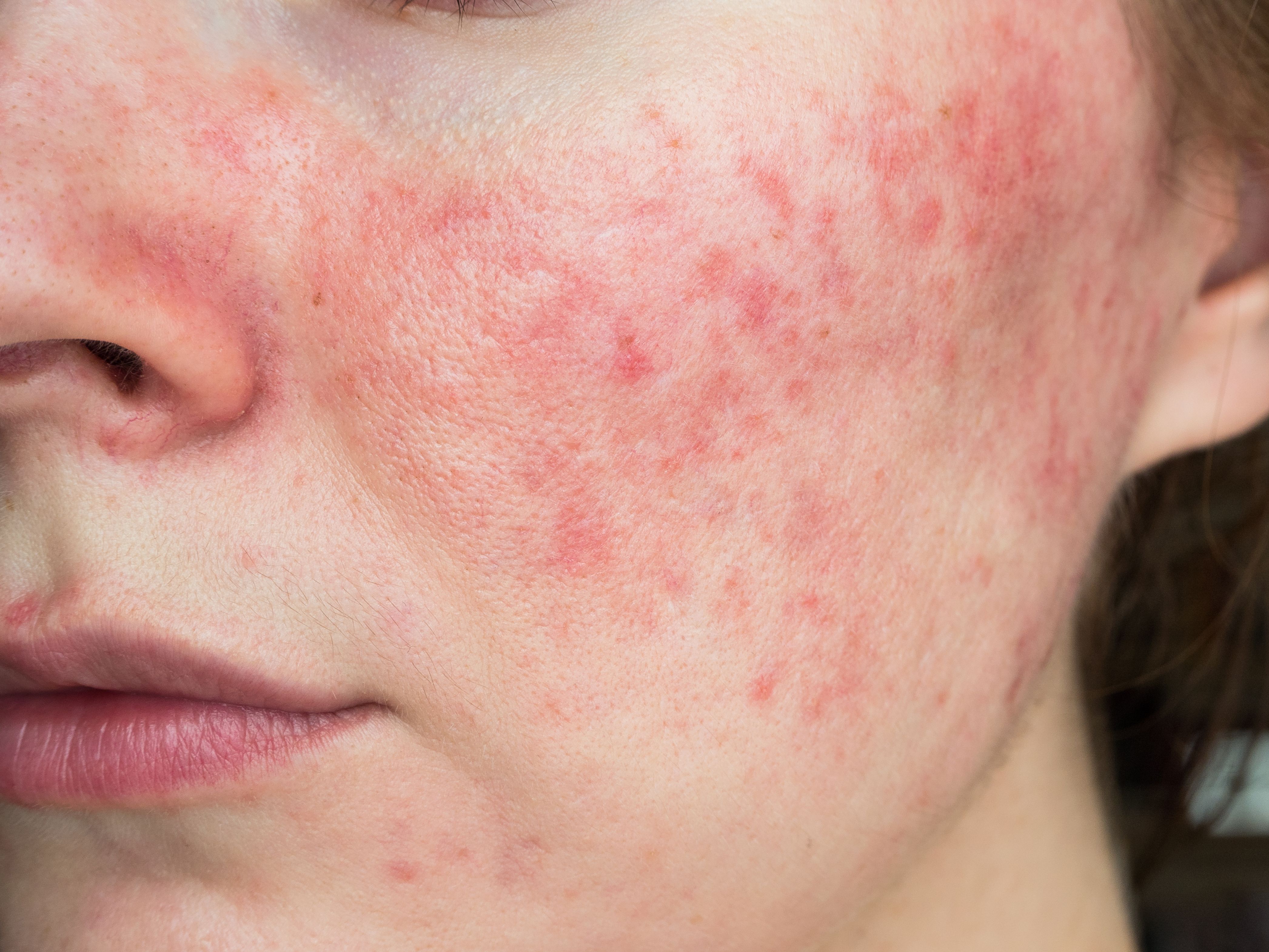- Acne
- Actinic Keratosis
- Aesthetics
- Alopecia
- Atopic Dermatitis
- Buy-and-Bill
- COVID-19
- Case-Based Roundtable
- Chronic Hand Eczema
- Drug Watch
- Eczema
- General Dermatology
- Hidradenitis Suppurativa
- Melasma
- NP and PA
- Pediatric Dermatology
- Pigmentary Disorders
- Practice Management
- Precision Medicine and Biologics
- Prurigo Nodularis
- Psoriasis
- Psoriatic Arthritis
- Rare Disease
- Rosacea
- Skin Cancer
- Vitiligo
- Wound Care
News
Article
Low Levels of Serum GLA in Rosacea Negatively Associated With Erythema, Anxiety, and Depression
Author(s):
Researchers observed lower levels of serum gamma linolenic acid in patients with rosacea.
Shauerman/Adobe Stock

A recent study explored the association between serum gamma linolenic acid (GLA) levels, erythema severity, and anxiety/depression in patients with erythematotelangiectatic rosacea (ETR).
The study, conducted at a single site, recruited 62 ETR subtype rosacea patients and 14 age-matched normal controls (NCs). Researchers examined blood samples, assessed GLA levels, erythema degree, and anxiety status in each patient.
No significant differences were observed in age, gender, BMI, and prevalence of hypertension, diabetes, or hypercholesterolemia between rosacea patients and NCs.
However, baseline serum GLA levels in rosacea patients were lower than those in NCs.
Rosacea patients with lower GLA levels exhibited higher erythema severity, as indicated by higher Clinical Erythema Assessment and Patient Self-Assessment scores. Spearman correlation analysis highlighted a significant association between GLA levels and erythema severity.
Linear regression analysis revealed that baseline GLA levels were significant predictors of CEA and PSA scores after 1 month of conventional treatment.
Furthermore, patients with lower GLA levels also displayed heightened anxiety and depression, as evidenced by higher scores on the Generalized Anxiety Disorder-7 and Patient Health Questionnaire-9 scales. Correlation analysis further confirmed the negative association between GLA levels and anxiety/depression status.
The findings suggest that GLA, an endogenous n-6 polyunsaturated fatty acid, plays a crucial role in the pathogenesis of rosacea. The results propose GLA as a potential therapeutic target for rosacea, offering new avenues for treatment beyond current options.
"The present study indicates that lower levels of serum GLA in rosacea patients are negatively associated with the degree of erythema and anxiety/depression status," study authors wrote. "The development of rosacea is attributed to multiple factors, including abnormal immune response, disrupted lipid metabolism, and impaired skin barrier. On the basis of the multifaced factors, several studies, including our own, found limited improvements in rosacea patients. Therefore, targeting major shared signaling pathways may prove more effective than targeting individual receptors in isolation. As GLA is involved in multiple shared pathways, it might hold promise for treating rosacea."
Reference
Tang J-Y, Chen M-L, Wan M, et al. Associations of serum gamma-linolenic acid levels with erythema severity and anxiety/depression status in patients with rosacea. An Bras Dermatol. Published online December 6, 2023. doi:10.1016/j.abd.2023.01.008
Newsletter
Like what you’re reading? Subscribe to Dermatology Times for weekly updates on therapies, innovations, and real-world practice tips.











